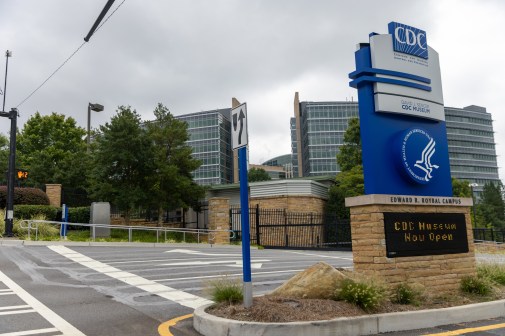FDA deputy CIO: Security vital to IT strategic plan

More than 10 years ago, pharmaceutical companies needed multiple semi-truck trailers to mail all the documents that the Food and Drug Administration required for a new drug submission.
Now, “well over” 90 percent of the information FDA receives comes electronically for the drugs, food, tobacco, medical devices or radiological devices, like microwave ovens, that the agency regulates, said FDA Deputy CIO Brad Wintermute Friday. In the midst of an ever-increasing load of data and quickly aging technology, the agency’s IT leaders recently released an IT strategic plan to streamline its systems, he said. Wintermute laid out details of the plan during the Appian World event held in Washington, D.C.
“Our IT systems are there, basically, so business can get done,” Wintermute said during the event.
The plan, which came out in September, hinges on three pillars: improving the agency’s quality, security and efficiency.
With so many organizations sending information about intellectual property to the agency electronically, Wintermute said security is an important part of that plan. In some cases, he said it might cost a company $1 billion and take a decade to develop a new drug.
“We hold the ingredients to patented drugs,” he said. “We’re a ripe target … of a lot of organizations,” he said. “They want to get that data for not just a trophy, they want to actually be able to use it for some kind of competitive advantage.”
Though, he notes the agency is “already pretty secure.”
He also talked about FDA’s “choose your own device” program — launched in April — which allows staffers to choose from several pre-approved smartphones. Mobility has been a priority for CIO Todd Simpson since he came to the agency last year. In October, Simpson told FedScoop he planed to put into production “a fully backed solution” to advance mobility through a “choose your own device” within 18 months as part of an agencywide sprint.
Simpson also emphasized the need for the agency’s inspectors to be more mobile. Wintermute told FedScoop that the agency is currently rolling out tablets to inspectors.
During the presentation, Wintermute also said the agency hopes at some point to develop mobile apps that allow the agency to more quickly analyze data and respond to adverse events.
“There’s some real benefits to mobile other than just mobile,” he said.
Contact the reporter on this story via email Whitney.Wyckoff@fedscoop.com, or follow her on Twitter @whitneywyckoff. Sign up for all the federal IT news you need in your inbox every morning at 6:00 here: fdscp.com/sign-me-on.






